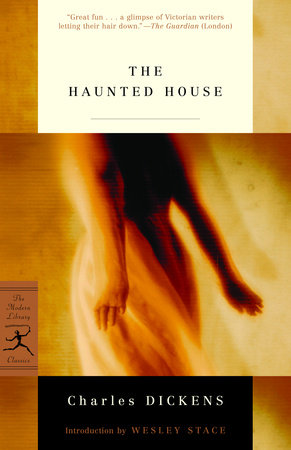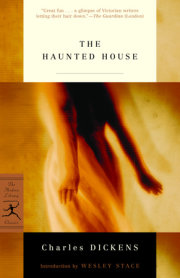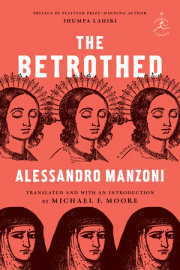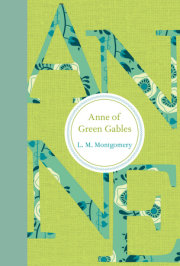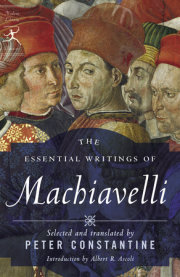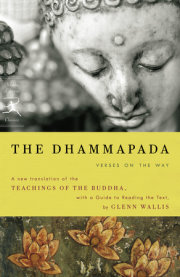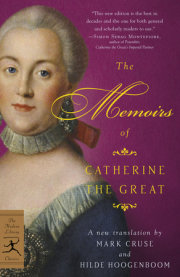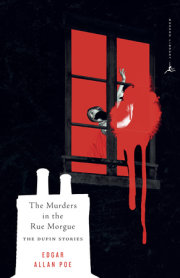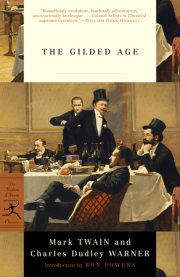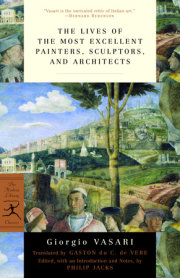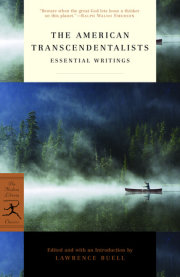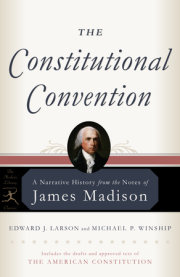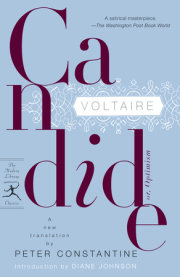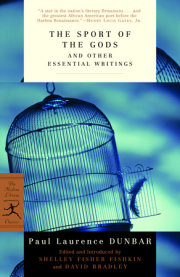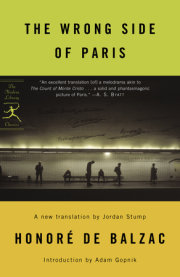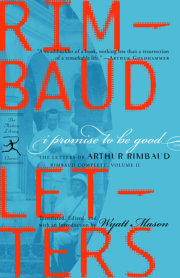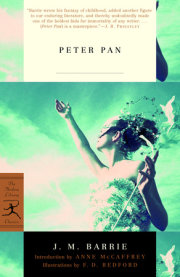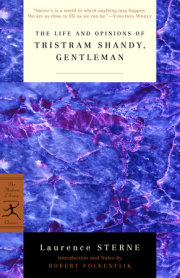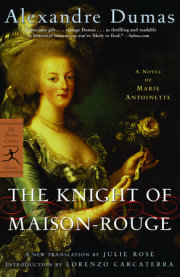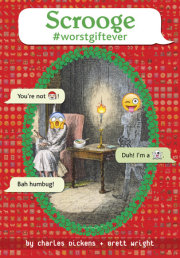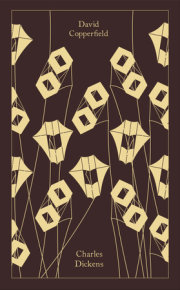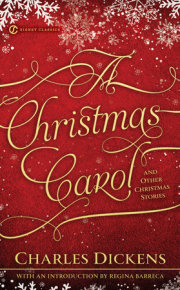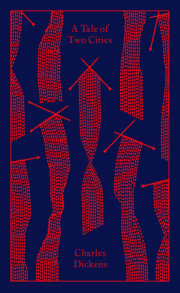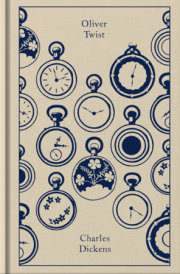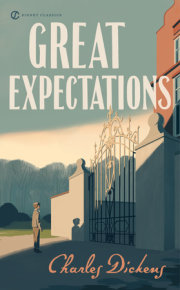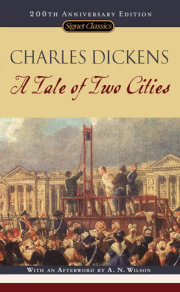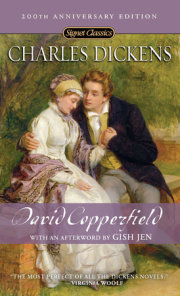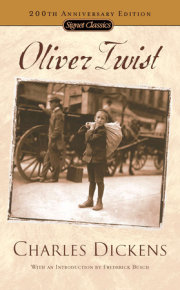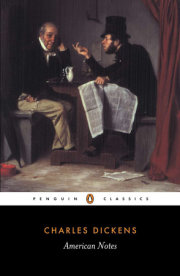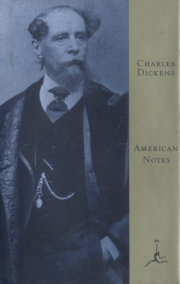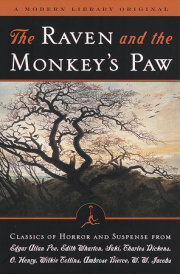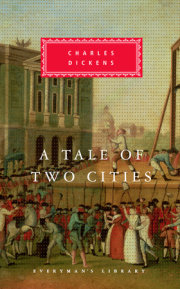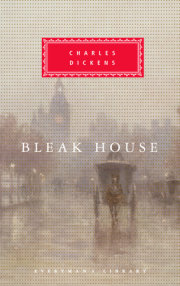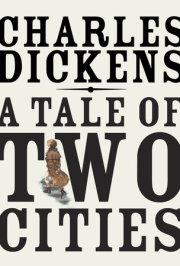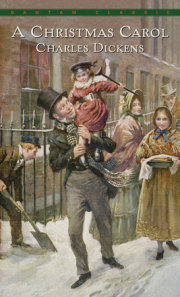The Mortals in the House
Charles Dickens under none of the accredited ghostly circumstances, and environed by none of the conventional ghostly surroundings, did I first make acquaintance with the house which is the subject of this Christmas piece. I saw it in the daylight, with the sun upon it. There was no wind, no rain, no lightning, no thunder, no awful or unwonted circumstance, of any kind, to heighten its effect. More than that: I had come to it direct from a railway station; it was not more than a mile distant from the railway station; and, as I stood outside the house, looking back upon the way I had come, I could see the goods train running smoothly along the embankment in the valley. I will not say that everything was utterly common-place, because I doubt if anything can be that, except to utterly common-place people—and there my vanity steps in; but, I will take it on myself to say that anybody might see the house as I saw it, any fine autumn morning.
The manner of my lighting on it was this.
I was travelling towards London out of the North, intending to stop by the way, to look at the house. My health required a temporary residence in the country; and a friend of mine who knew that, and who had happened to drive past the house, had written to me to suggest it as a likely place. I had got into the train at midnight, and had fallen asleep, and had woke up and had sat looking out of the window at the brilliant Northern Lights in the sky, and had fallen asleep again, and had woke up again to find the night gone, with the usual discontented conviction on me that I hadn’t been to sleep at all;—upon which question, in the first imbecility of that condition, I am ashamed to believe that I would have done wager by battle with the man who sat opposite me. That opposite man had had, through the night—as that opposite man always has—several legs too many, and all of them too long. In addition to this unreasonable conduct (which was only to be expected of him), he had had a pencil and a pocket-book, and had been perpetually listening and taking notes. It had appeared to me that these aggravating notes related to the jolts and bumps of the carriage, and I should have resigned myself to his taking them, under a general supposition that he was in the civil-engineering way of life, if he had not sat staring straight over my head whenever he listened. He was a goggle-eyed gentleman of a perplexed aspect, and his demeanour became unbearable.
It was a cold, dead morning (the sun not being up yet), and when I had out-watched the paling light of the fires of the iron country, and the curtain of heavy smoke that hung at once between me and the stars and between me and the day, I turned to my fellow-traveller and said:
“I beg your pardon, sir, but do you observe anything particular in me?” For, really, he appeared to be taking down, either my travelling-cap or my hair, with a minuteness that was a liberty.
The goggle-eyed gentleman withdrew his eyes from behind me, as if the back of the carriage were a hundred miles off, and said, with a lofty look of compassion for my insignificance:
“In you, sir?—B.”
“B, sir?” said I, growing warm.
“I have nothing to do with you, sir,” returned the gentleman; “pray let me listen—O.”
He enunciated this vowel after a pause, and noted it down.
At first I was alarmed, for an Express lunatic and no communication with the guard, is a serious position. The thought came to my relief that the gentleman might be what is popularly called a Rapper: one of a sect for (some of) whom I have the highest respect, but whom I don’t believe in. I was going to ask him the question, when he took the bread out of my mouth.
“You will excuse me,” said the gentleman, contemptuously, “if I am too much in advance of common humanity to trouble myself at all about it. I have passed the night—as indeed I pass the whole of my time now—in spiritual intercourse.”
“Oh!” said I, something snappishly.
“The conferences of the night began,” continued the gentleman, turning several leaves of his note-book, “with this message: ‘Evil communications corrupt good manners.’ ”
“Sound,” said I; “but, absolutely new?”
“New from spirits,” returned the gentleman.
I could only repeat my rather snappish “Oh!” and ask if I might be favoured with the last communication?
“ ‘A bird in the hand,’ ” said the gentleman, reading his last entry with great solemnity, “ ‘is worth two in the Bosh.’ ”
“Truly I am of the same opinion,” said I; “but shouldn’t it be Bush?”
“It came to me, Bosh,” returned the gentleman.
The gentleman then informed me that the spirit of Socrates had delivered this special revelation in the course of the night. “My friend, I hope you are pretty well. There are two in this railway carriage. How do you do? There are seventeen thousand four hundred and seventy-nine spirits here, but you cannot see them. Pythagoras is here. He is not at liberty to mention it, but hopes you like travelling.” Galileo likewise had dropped in, with this scientific intelligence. “I am glad to see you, amico. Come sta? Water will freeze when it is cold enough. Addio!” In the course of the night, also, the following phenomena had occurred. Bishop Butler had insisted on spelling his name, “Bubler,” for which offence against orthography and good manners he had been dismissed as out of temper. John Milton (suspected of wilful mystification) had repudiated the authorship of Paradise Lost, and had introduced, as joint authors of that poem, two Unknown gentlemen, respectively named Grungers and Scadgingtone. And Prince Arthur, nephew of King John of England, had described himself as tolerably comfortable in the seventh circle, where he was learning to paint on velvet, under the direction of Mrs. Trimmer and Mary Queen of Scots.
If this should meet the eye of the gentleman who favoured me with these disclosures, I trust he will excuse my confessing that the sight of the rising sun, and the contemplation of the magnificent Order of the vast Universe, made me impatient of them. In a word, I was so impatient of them, that I was mightily glad to get out at the next station, and to exchange these clouds and vapours for the free air of Heaven.
By that time it was a beautiful morning. As I walked away among such leaves as had already fallen from the golden, brown, and russet trees; and as I looked around me on the wonders of Creation, and thought of the steady, unchanging, and harmonious laws by which they are sustained; the gentleman’s spiritual intercourse seemed to me as poor a piece of journey-work as ever this world saw. In which heathen state of mind, I came within view of the house, and stopped to examine it attentively.
It was a solitary house, standing in a sadly neglected garden: a pretty even square of some two acres. It was a house of about the time of George the Second; as stiff, as cold, as formal, and in as bad taste, as could possibly be desired by the most loyal admirer of the whole quartett of Georges. It was uninhabited, but had, within a year or two, been cheaply repaired to render it habitable; I say cheaply, because the work had been done in a surface manner, and was already decaying as to the paint and plaster, though the colours were fresh. A lop-sided board drooped over the garden wall, announcing that it was “to let on very reasonable terms, well furnished.” It was much too closely and heavily shadowed by trees, and, in particular, there were six tall poplars before the front windows, which were excessively melancholy, and the site of which had been extremely ill chosen.
It was easy to see that it was an avoided house—a house that was shunned by the village, to which my eye was guided by a church spire some half a mile off—a house that nobody would take. And the natural inference was, that it had the reputation of being a haunted house.
No period within the four-and-twenty hours of day and night, is so solemn to me, as the early morning. In the summer time, I often rise very early, and repair to my room to do a day’s work before breakfast, and I am always on those occasions deeply impressed by the stillness and solitude around me. Besides that there is something awful in the being surrounded by familiar faces asleep—in the knowledge that those who are dearest to us and to whom we are dearest, are profoundly unconscious of us, in an impassive state anticipative of that mysterious condition to which we are all tending—the stopped life, the broken threads of yesterday, the deserted seat, the closed book, the unfinished but abandoned occupation, all are images of Death. The tranquillity of the hour is the tranquillity of Death. The colour and the chill have the same association. Even a certain air that familiar household objects take upon them when they first emerge from the shadows of the night into the morning, of being newer, and as they used to be long ago, has its counterpart in the subsidence of the worn face of maturity or age, in death, into the old youthful look. Moreover, I once saw the apparition of my father, at this hour. He was alive and well, and nothing ever came of it, but I saw him in the daylight, sitting with his back towards me, on a seat that stood beside my bed. His head was resting on his hand, and whether he was slumbering or grieving, I could not discern. Amazed to see him there, I sat up, moved my position, leaned out of bed, and watched him. As he did not move, I spoke to him more than once. As he did not move then, I became alarmed and laid my hand upon his shoulder, as I thought—and there was no such thing.
For all these reasons, and for others less easily and briefly statable, I find the early morning to be my most ghostly time. Any house would be more or less haunted, to me, in the early morning; and a haunted house could scarcely address me to greater advantage than then.
I walked on into the village, with the desertion of this house upon my mind, and I found the landlord of the little inn, sanding his door-step. I bespoke breakfast, and broached the subject of the house.
“Is it haunted?” I asked.
The landlord looked at me, shook his head, and answered, “I say nothing.”
“Then it is haunted?”
“Well!” cried the landlord, in an outburst of frankness that had the appearance of desperation—“I wouldn’t sleep in it.”
“Why not?”
“If I wanted to have all the bells in a house ring, with nobody to ring ’em; and all the doors in a house bang with nobody to bang ’em; and all sorts of feet treading about with no feet there; why then,” said the landlord, “I’d sleep in that house.”
“Is anything seen there?”
The landlord looked at me again, and then, with his former appearance of desperation, called down his stable-yard for “Ikey!”
The call produced a high-shouldered young fellow, with a round red face, a short crop of sandy hair, a very broad humorous mouth, a turned-up nose, and a great sleeved waistcoat of purple bars with mother-of-pearl buttons, that seemed to be growing upon him, and to be in a fair way—if it were not pruned—of covering his head and overrunning his boots.
“This gentleman wants to know,” said the landlord, “if anything’s seen at the Poplars.”
“ ’Ooded woman with a howl,” said Ikey, in a state of great freshness.
“Do you mean a cry?”
“I mean a bird, sir.”
“A hooded woman with an owl. Dear me! Did you ever see her?”
“I seen the howl.”
“Never the woman?”
“Not so plain as the howl, but they always keeps together.”
“Has anybody ever seen the woman as plainly as the owl?”
“Lord bless you, sir! Lots.”
“Who?”
“Lord bless you, sir! Lots.”
“The general-dealer opposite, for instance, who is opening his shop?”
“Perkins? Bless you, Perkins wouldn’t go a-nigh the place. No!” observed the young man, with considerable feeling; “he an’t over-wise, an’t Perkins, but he an’t such a fool as that.”
(Here, the landlord murmured his confidence in Perkins’s knowing better.)
“Who is—or who was—the hooded woman with the owl? Do you know?”
“Well!” said Ikey, holding up his cap with one hand while he scratched his head with the other, “they say, in general, that she was murdered, and the howl he ’ooted the while.”
This very concise summary of the facts was all I could learn, except that a young man, as hearty and likely a young man as ever I see, had been took with fits and held down in ’em, after seeing the hooded woman. Also, that a personage dimly described as “a hold chap, a sort of a one-eyed tramp, answering to the name of Joby, unless you challenged him as Greenwood, and then he said, ‘Why not? And even if so, mind your own business,’ ” had encountered the hooded woman, a matter of five or six times. But, I was not materially assisted by these witnesses: inasmuch as the first was in California, and the last was, as Ikey said (and he was confirmed by the landlord) Anywheres.
Now, although I regard with a hushed and solemn fear, the mysteries, between which and this state of existence is interposed the barrier of the great trial and change that fall on all the things that live; and although I have not the audacity to pretend that I know anything of them; I can no more reconcile the mere banging of doors, ringing of bells, creaking of boards, and such-like insignificances, with the majestic beauty and pervading analogy of all the Divine rules that I am permitted to understand, than I had been able, a little while before, to yoke the spiritual intercourse of my fellow-traveller to the chariot of the rising sun. Moreover, I had lived in two haunted houses—both abroad. In one of these, an old Italian palace, which bore the reputation of being very badly haunted indeed, and which had recently been twice abandoned on that account, I lived eight months, most tranquilly and pleasantly: notwithstanding that the house had a score of mysterious bedrooms, which were never used, and possessed, in one large room in which I sat reading, times out of number at all hours, and next to which I slept, a haunted chamber of the first pretensions. I gently hinted these considerations to the landlord. And as to this particular house having a bad name, I reasoned with him, Why, how many things had bad names undeservedly, and how easy it was to give bad names, and did he not think that if he and I were persistently to whisper in the village that any weird-looking old drunken tinker of the neighbourhood had sold himself to the Devil, he would come in time to be suspected of that commercial venture! All this wise talk was perfectly ineffective with the landlord, I am bound to confess, and was as dead a failure as ever I made in my life.
To cut this part of the story short, I was piqued about the haunted house, and was already half resolved to take it. So, after breakfast, I got the keys from Perkins’s brother-in-law (a whip and harness-maker, who keeps the Post Office, and is under submission to a most rigorous wife of the Doubly Seceding Little Emmanuel persuasion), and went up to the house, attended by my landlord and by Ikey.
Within, I found it, as I had expected, transcendantly dismal. The slowly changing shadows waved on it from the heavy trees, were doleful in the last degree; the house was ill-placed, ill-built, ill-planned, and ill-fitted. It was damp, it was not free from dry rot, there was a flavour of rats in it, and it was the gloomy victim of that indescribable decay which settles on all the work of man’s hands whenever it is not turned to man’s account. The kitchens and offices were too large, and too remote from each other. Above stairs and below, waste tracks of passage intervened between patches of fertility represented by rooms; and there was a mouldy old well with a green growth upon it, hiding, like a murderous trap, near the bottom of the back-stairs, under the double row of bells. One of these bells was labelled, on a black ground in faded white letters, Master B. This, they told me, was the bell that rang the most.
“Who was Master B.?” I asked. “Is it known what he did while the owl hooted?”
“Rang the bell,” said Ikey.
I was rather struck by the prompt dexterity with which this young man pitched his fur cap at the bell, and rang it himself. It was a loud, unpleasant bell, and made a very disagreeable sound. The other bells were inscribed according to the names of the rooms to which their wires were conducted: as “Picture Room,” “Double Room,” “Clock Room,” and the like. Following Master B.’s bell to its source, I found that young gentleman to have had but indifferent third-class accommodation in a triangular cabin under the cock-loft, with a corner fireplace which Master B. must have been exceedingly small if he were ever able to warm himself at, and a corner chimney-piece like a pyramidal staircase to the ceiling for Tom Thumb. The papering of one side of the room had dropped down bodily, with fragments of plaster adhering to it, and almost blocked up the door. It appeared that Master B. in his spiritual condition, always made a point of pulling the paper down. Neither the landlord nor Ikey could suggest why he made such a fool of himself.
Except that the house had an immensely large rambling loft at top, I made no other discoveries. It was moderately well furnished, but sparely. Some of the furniture—say, a third—was as old as the house; the rest, was of various periods within the last half century. I was referred to a corn-chandler in the market-place of the county-town to treat for the house. I went that day, and I took it for six months.
It was just the middle of October when I moved in with my maiden sister (I venture to call her eight-and-thirty, she is so very handsome, sensible, and engaging). We took with us, a deaf stable-man, my bloodhound Turk, two woman servants, and a young person called an Odd Girl. I have reason to record of the attendant last enumerated, who was one of the Saint Lawrence’s Union Female Orphans, that she was a fatal mistake and a disastrous engagement.
The year was dying early, the leaves were falling fast, it was a raw cold day when we took possession, and the gloom of the house was most depressing. The cook (an amiable woman, but of a weak turn of intellect) burst into tears on beholding the kitchen, and requested that her silver watch might be delivered over to her sister (2, Tuppintock’s Gardens, Liggs’s Walk, Clapham Rise), in the event of anything happening to her from the damp. Streaker, the housemaid, feigned cheerfulness, but was the greater martyr. The Odd Girl, who had never been in the country, alone was pleased, and made arrangements for sowing an acorn in the garden outside the scullery window, and rearing an oak.
We went, before dark, through all the natural—as opposed to supernatural—miseries incidental to our state. Dispiriting reports ascended (like the smoke) from the basement in volumes, and descended from the upper rooms. There was no rolling-pin, there was no salamander (which failed to surprise me, for I don’t know what it is), there was nothing in the house, what there was, was broken, the last people must have lived like pigs, what could the meaning of the landlord be? Through these distresses, the Odd Girl was cheerful and exemplary. But, within four hours after dark we had got into a supernatural groove, and the Odd Girl had seen “Eyes,” and was in hysterics.
My sister and I had agreed to keep the haunting strictly to ourselves, and my impression was, and still is, that I had not left Ikey, when he helped to unload the cart, alone with the women, or any one of them, for one minute. Nevertheless, as I say, the Odd Girl had “seen Eyes” (no other explanation could ever be drawn from her), before nine, and by ten o’clock had had as much vinegar applied to her as would pickle a handsome salmon.
I leave a discerning public to judge of my feelings, when, under these untoward circumstances, at about half-past ten o’clock Master B.’s bell began to ring in a most infuriated manner, and Turk howled until the house resounded with his lamentations!
I hope I may never again be in a state of mind so unchristian as the mental frame in which I lived for some weeks, respecting the memory of Master B. Whether his bell was rung by rats, or mice, or bats, or wind, or what other accidental vibration, or sometimes by one cause, sometimes another, and sometimes by collusion, I don’t know; but, certain it is, that it did ring, two nights out of three, until I conceived the happy idea of twisting Master B.’s neck—in other words, breaking his bell short off—and silencing that young gentleman, as to my experience and belief, for ever.
But, by that time, the Odd Girl had developed such improving powers of catalepsy, that she had become a shining example of that very inconvenient disorder. She would stiffen, like a Guy Fawkes endowed with unreason, on the most irrelevant occasions. I would address the servants in a lucid manner, pointing out to them that I had painted Master B.’s room and balked the paper, and taken Master B.’s bell away and balked the ringing, and if they could suppose that that confounded boy had lived and died, to clothe himself with no better behaviour than would most unquestionably have brought him and the sharpest particles of a birch-broom into close acquaintance in the present imperfect state of existence, could they also suppose a mere poor human being, such as I was, capable by those contemptible means of counteracting and limiting the powers of the disembodied spirits of the dead, or of any spirits?—I say I would become emphatic and cogent, not to say rather complacent, in such an address, when it would all go for nothing by reason of the Odd Girl’s suddenly stiffening from the toes upward, and glaring among us like a parochial petrifaction.
Streaker, the housemaid, too, had an attribute of a most discomfiting nature. I am unable to say whether she was of an unusually lymphatic temperament, or what else was the matter with her, but this young woman became a mere Distillery for the production of the largest and most transparent tears I ever met with. Combined with these characteristics, was a peculiar tenacity of hold in those specimens, so that they didn’t fall, but hung upon her face and nose. In this condition, and mildly and deploringly shaking her head, her silence would throw me more heavily than the Admirable Crichton could have done in a verbal disputation for a purse of money. Cook, likewise, always covered me with confusion as with a garment, by neatly winding up the session with the protest that the Ouse was wearing her out, and by meekly repeating her last wishes regarding her silver watch.
As to our nightly life; the contagion of suspicion and fear was among us, and there is no such contagion under the sky. Hooded woman? According to the accounts, we were in a perfect Convent of hooded women. Noises? With that contagion down stairs, I myself have sat in the dismal parlour, listening, until I have heard so many and such strange noises, that they would have chilled my blood if I had not warmed it by dashing out to make discoveries. Try this in bed, in the dead of the night; try this at your own comfortable fireside, in the life of the night. You can fill any house with noises, if you will, until you have a noise for every nerve in your nervous system.
I repeat; the contagion of suspicion and fear was among us, and there is no such contagion under the sky. The women (their noses in a chronic state of excoriation from smelling-salts), were always primed and loaded for a swoon, and ready to go off with hair-triggers. The two elder detached the Odd Girl on all expeditions that were considered doubly hazardous, and she always established the reputation of such adventures by coming back cataleptic. If Cook or Streaker went overhead after dark, we knew we should presently hear a bump on the ceiling; and this took place so constantly, that it was as if a fighting man were engaged to go about the house, administering a touch of his art which I believe is called The Auctioneer, to every domestic he met with.
It was in vain to do anything. It was in vain to be frightened, for the moment in one’s own person, by a real owl, and then to show the owl. It was in vain to discover, by striking an accidental discord on the piano, that Turk always howled at particular notes and combinations. It was in vain to be a Rhadamanthus with the bells, and if an unfortunate bell rang without leave, to have it down inexorably and silence it. It was in vain to fire up chimneys, let torches down the well, charge furiously into suspected rooms and recesses. We changed servants, and it was no better. The new set ran away, and a third set came, and it was no better. At last, our comfortable housekeeping got to be so disorganised and wretched, that I one night dejectedly said to my sister: “Patty, I begin to despair of our getting people to go on with us here, and I think we must give this up.”
My sister, who is a woman of immense spirit, replied. “No, John, don’t give it up. Don’t be beaten, John. There is another way.”
“And what is that?” said I.
“John,” returned my sister, “if we are not to be driven out of this house, and that for no reason whatever, that is apparent to you or me, we must help ourselves and take the house wholly and solely into our own hands.”
“But, the servants,” said I.
“Have no servants,” said my sister, boldly.
Like most people in my grade of life, I had never thought of the possibility of going on without those faithful obstructions. The notion was so new to me when suggested, that I looked very doubtful.
“We know they come here to be frightened and infect one another, and we know they are frightened and do infect one another,” said my sister.
“With the exception of Bottles,” I observed, in a meditative tone.
(The deaf stable-man. I kept him in my service, and still keep him, as a phenomenon of moroseness not to be matched in England.)
“To be sure, John,” assented my sister; “except Bottles. And what does that go to prove? Bottles talks to nobody, and hears nobody unless he is absolutely roared at, and what alarm has Bottles ever given, or taken! None.”
This was perfectly true; the individual in question having retired, every night at ten o’clock, to his bed over the coach-house, with no other company than a pitchfork and a pail of water. That the pail of water would have been over me, and the pitchfork through me, if I had put myself without announcement in Bottles’s way after that minute, I had deposited in my own mind as a fact worth remembering. Neither had Bottles ever taken the least notice of any of our many uproars. An imperturbable and speechless man, he had sat at his supper, with Streaker present in a swoon, and the Odd Girl marble, and had only put another potato in his cheek, or profited by the general misery to help himself to beefsteak pie.
“And so,” continued my sister, “I exempt Bottles. And considering, John, that the house is too large, and perhaps too lonely, to be kept well in hand by Bottles, you, and me, I propose that we cast about among our friends for a certain selected number of the most reliable and willing—form a Society here for three months—wait upon ourselves and one another—live cheerfully and socially—and see what happens.”
I was so charmed with my sister, that I embraced her on the spot, and went into her plan with the greatest ardour.
We were then in the third week of November; but, we took our measures so vigorously, and were so well seconded by the friends in whom we confided, that there was still a week of the month unexpired, when our party all came down together merrily, and mustered in the haunted house.
I will mention, in this place, two small changes that I made while my sister and I were yet alone. It occurring to me as not improbable that Turk howled in the house at night, partly because he wanted to get out of it, I stationed him in his kennel outside, but unchained; and I seriously warned the village that any man who came in his way must not expect to leave him without a rip in his own throat. I then casually asked Ikey if he were a judge of a gun? On his saying, “Yes, sir, I knows a good gun when I sees her,” I begged the favour of his stepping up to the house and looking at mine.
“She’s a true one, sir,” said Ikey, after inspecting a double-barreled rifle that I bought in New York a few years ago. “No mistake about her, sir.”
“Ikey,” said I, “don’t mention it; I have seen something in this house.”
“No sir?” he whispered, greedily opening his eyes. “ ’Ooded lady, sir?”
“Don’t be frightened,” said I. “It was a figure rather like you.”
“Lord, sir?”
“Ikey!” said I, shaking hands with him warmly: I may say affectionately; “if there is any truth in these ghost-stories, the greatest service I can do you, is, to fire at that figure. And I promise you, by Heaven and earth, I will do it with this gun if I see it again!”
The young man thanked me, and took his leave with some little precipitation, after declining a glass of liquor. I imparted my secret to him, because I had never quite forgotten his throwing his cap at the bell; because I had, on another occasion, noticed something very like a fur cap, lying not far from the bell, one night when it had burst out ringing; and because I had remarked that we were at our ghostliest whenever he came up in the evening to comfort the servants. Let me do Ikey no injustice. He was afraid of the house, and believed in its being haunted; and yet he would play false on the haunting side, so surely as he got an opportunity. The Odd Girl’s case was exactly similar. She went about the house in a state of real terror, and yet lied monstrously and wilfully, and invented many of the alarms she spread, and made many of the sounds we heard. I had had my eye on the two, and I know it. It is not necessary for me, here, to account for this preposterous state of mind; I content myself with remarking that it is familiarly known to every intelligent man who has had fair medical, legal, or other watchful experience; that it is as well established and as common a state of mind as any with which observers are acquainted; and that it is one of the first elements, above all others, rationally to be suspected in, and strictly looked for, and separated from, any question of this kind.
To return to our party. The first thing we did when we were all assembled, was, to draw lots for bedrooms. That done, and every bedroom, and, indeed, the whole house, having been minutely examined by the whole body, we allotted the various household duties, as if we had been on a gipsy party, or a yachting party, or a hunting party, or were shipwrecked. I then recounted the floating rumours concerning the hooded lady, the owl, and Master B.: with others, still more filmy, which had floated about during our occupation, relative to some ridiculous old ghost of the female gender who went up and down, carrying the ghost of a round table; and also to an impalpable Jackass, whom nobody was ever able to catch. Some of these ideas I really believe our people below had communicated to one another in some diseased way, without conveying them in words. We then gravely called one another to witness, that we were not there to be deceived, or to deceive—which we considered pretty much the same thing—and that, with a serious sense of responsibility, we would be strictly true to one another, and would strictly follow out the truth. The understanding was established, that any one who heard unusual noises in the night, and who wished to trace them, should knock at my door; lastly, that on Twelfth Night, the last night of holy Christmas, all our individual experiences since that then present hour of our coming together in the haunted house, should be brought to light for the good of all; and that we would hold our peace on the subject till then, unless on some remarkable provocation to break silence.
We were, in number and in character, as follows:
First—to get my sister and myself out of the way—there were we two. In the drawing of lots, my sister drew her own room, and I drew Master B.’s. Next, there was our first cousin John Herschel, so called after the great astronomer: than whom I suppose a better man at a telescope does not breathe. With him, was his wife: a charming creature to whom he had been married in the previous spring. I thought it (under the circumstances) rather imprudent to bring her, because there is no knowing what even a false alarm may do at such a time; but I suppose he knew his own business best, and I must say that if she had been my wife, I never could have left her endearing and bright face behind. They drew the Clock Room. Alfred Starling, an unco
Copyright © 2004 by Charles Dickens. All rights reserved. No part of this excerpt may be reproduced or reprinted without permission in writing from the publisher.

